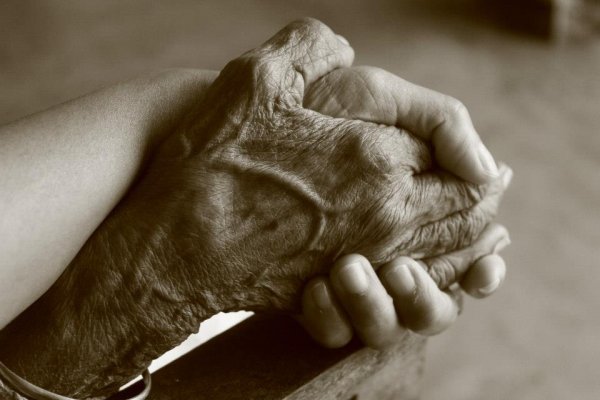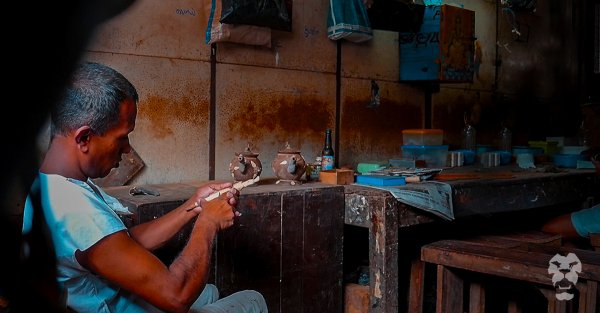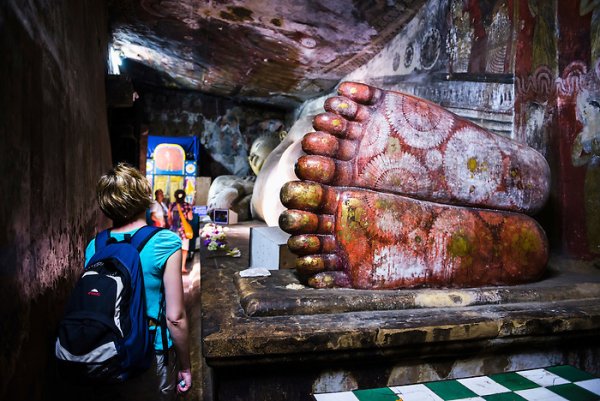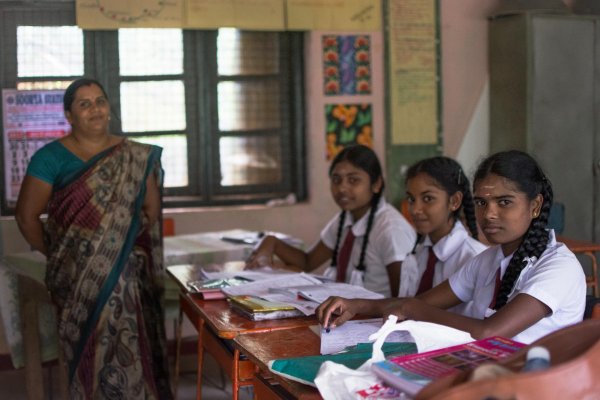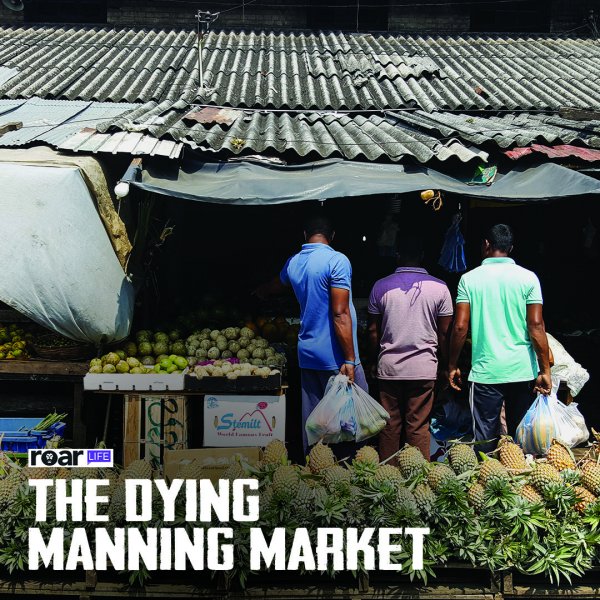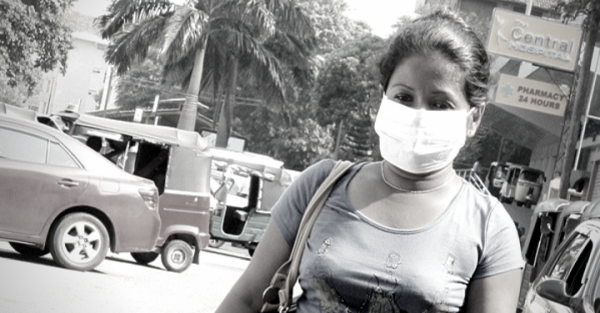
While heading towards Giriulla on the B322 in the Northwestern Province, you come across the rather sleepy town of Nalla. Falling between Giriulla and Kotadeniyawa, Nalla is remote and out of the way, with just a few kades (kiosks) scattered every few kilometres. Aside from the soupçon of families that have lived here for generations, others arrive at this halfway town in search of greener pastures. At the halfway point of this halfway town is a petrol station like no other.
This is Sri Lanka’s first all-female fuel filling station — the ‘Lanka Filling Station’ in Nalla, where the staff, from the manager to fuel pump attendants, are all women.
Given that it is considered a grubby job, Sri Lankan fuel attendants are almost universally men. But this town is challenging the norms.
On any day at the Nalla Lanka Filling Station, there are four women working the pumps. These are their stories.
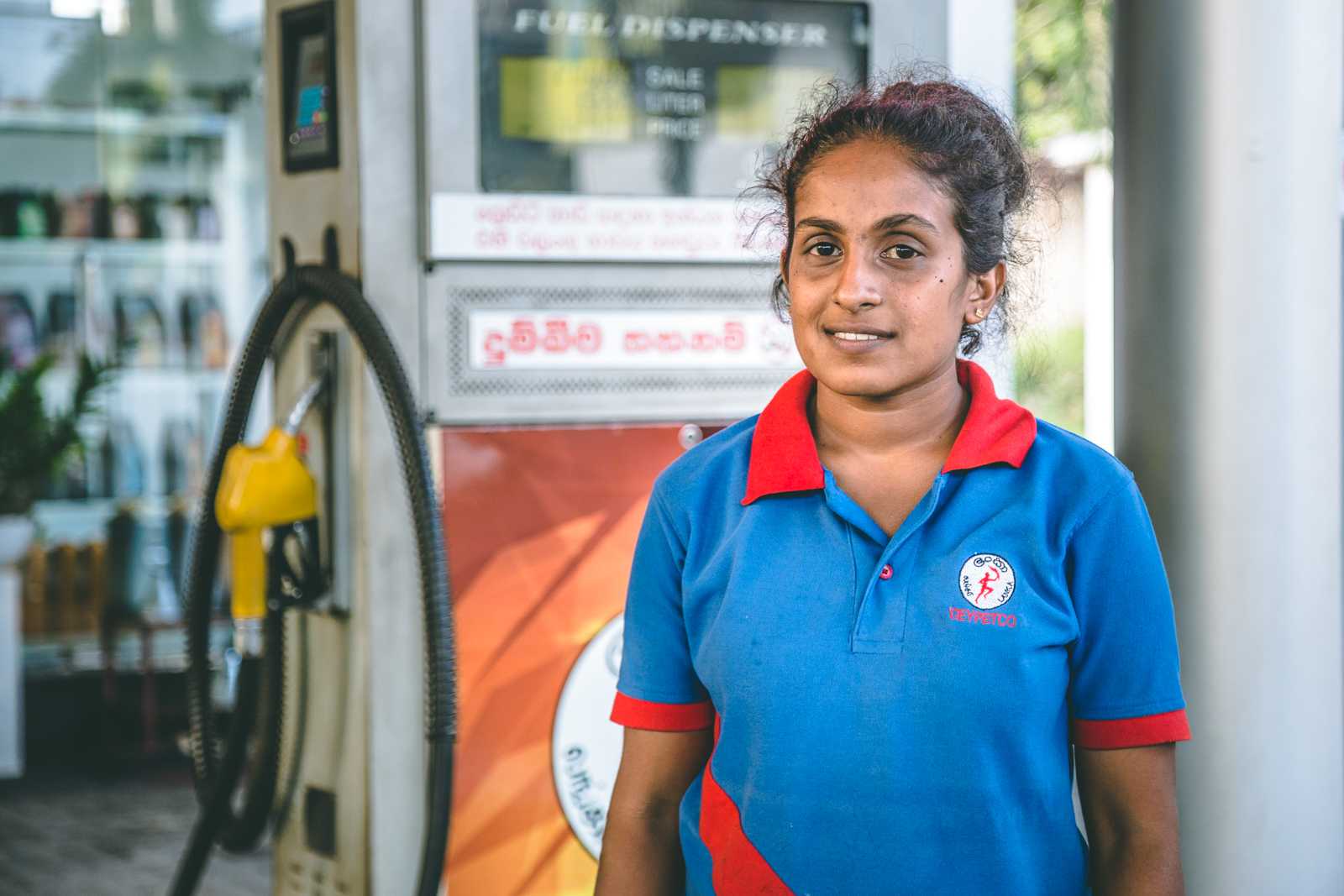
Photo credit: Nazly Ahmed/ Roar Media
Surangika Malkanthi, at 28, is the youngest attendant at the station. But she isn’t the newest recruit, having worked at the shed for about a year-and-a-half. From nearby Giriulla, she said the filling station had piqued her interest when it opened in 2014. Meek and retiring, Surangika looked to her husband before answering our questions.
“I wanted to join when it first started. It seemed interesting because they were hiring women too and I had not seen that happening before. I couldn’t because my children were young,” she explained. “Two years ago, I approached the manager and told her that I’m interested in working and was hired on the spot.”
Her husband, Akila, 28, also works at the filling station — but at night. The management won’t allow women to take the night shifts. In Sri Lanka, women are prohibited from working at night for a variety of reasons, primarily with physical safety in mind. Under the Employment of Women and Young Persons Act, employing a woman after 10 p.m. requires special permission from the Commissioner of Labour, and is only pursued in exceptional circumstances.
We asked Surangika about the most memorable incident she had experienced while working at the pumping station. She laughed out loud, and looked to her husband, Akila. He laughed and obliged with a funny story: “On the first day itself, she pumped diesel into a vehicle that runs on petrol,” he said.
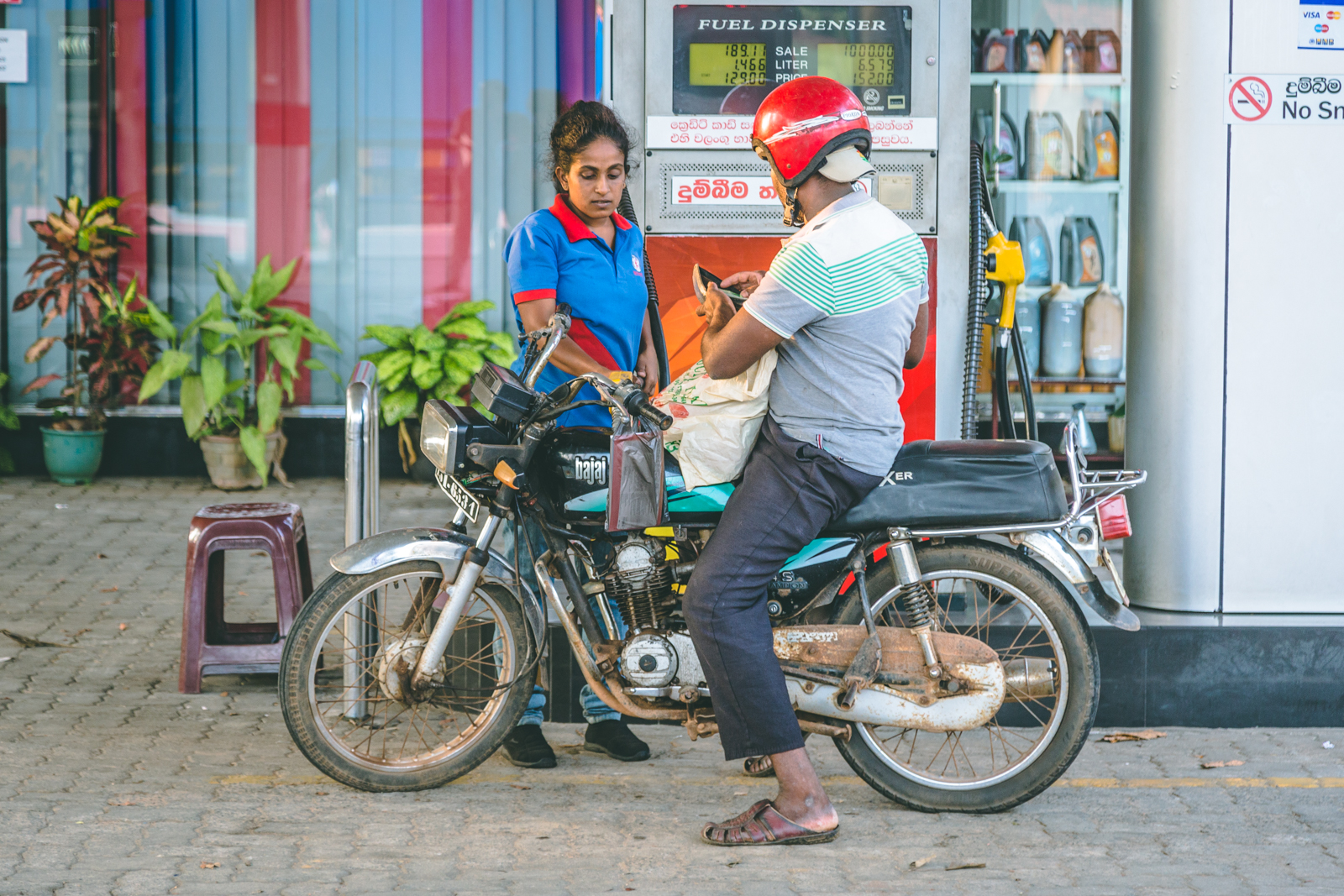
Photo credit: Nazly Ahmed/ Roar Media
I was nervous, even though I’d had a bit of training. I was anxious when the customer approached me and—without thinking twice—I took the diesel nozzle and started filling the tank. It was a petrol car. I had to cry out for him [Akila] to come and drain it out. After that, I used a petrol pump. I will never forget that as long as I’m here — they won’t let me forget it!”
When 39-year-old Sunitha Malkanthi (not related to Surangika Malkanthi) started working at the Lanka Filling Station in Nalla, she didn’t at first tell her parents or her children what she was doing. But after she started bringing home money, she was compelled to tell them.
While she declined to share with us what their exact response to her choice of employment was, she told us that she had been determined to continue working. Malkanthi’s hair is neat, jet-black, and tied into a tight plait. A brilliant white smile masks her austere demeanour. She spends most of the day away from the other attendants in solitude.
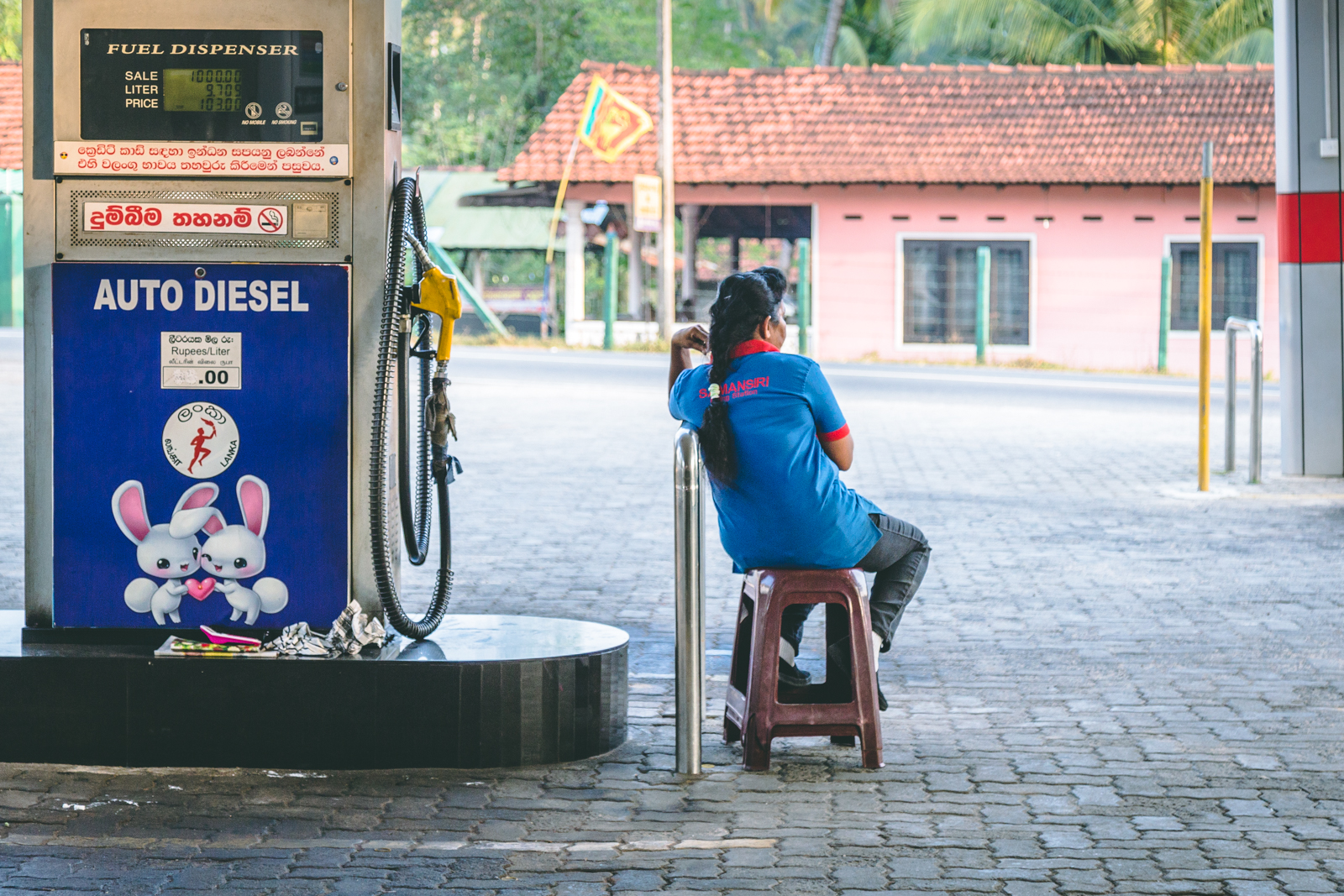
Photo credit: Nazly Ahmed / Roar Media
Malkanthi and her husband who are originally from Melsiripura (between Kurunegala and Dambulla), now live in Nalla, in a rented house that is within walking distance from the filling station. This makes it easier for Malkanthi to walk to and from work.
Many of the women in the Nalla area are employed in the textile and garment sector, having to work long hours for meagre salaries. Their options are limited, and are often confined to entering this gruelling industry, or staying home while their husbands continue to be the primary breadwinners. The lack of viable options often force women to stay at home. In 2017, 6.5% of the country’s female labour force—approximately 203,155 individuals—were unemployed, compared to the 2.9% men who were unemployed the same year.
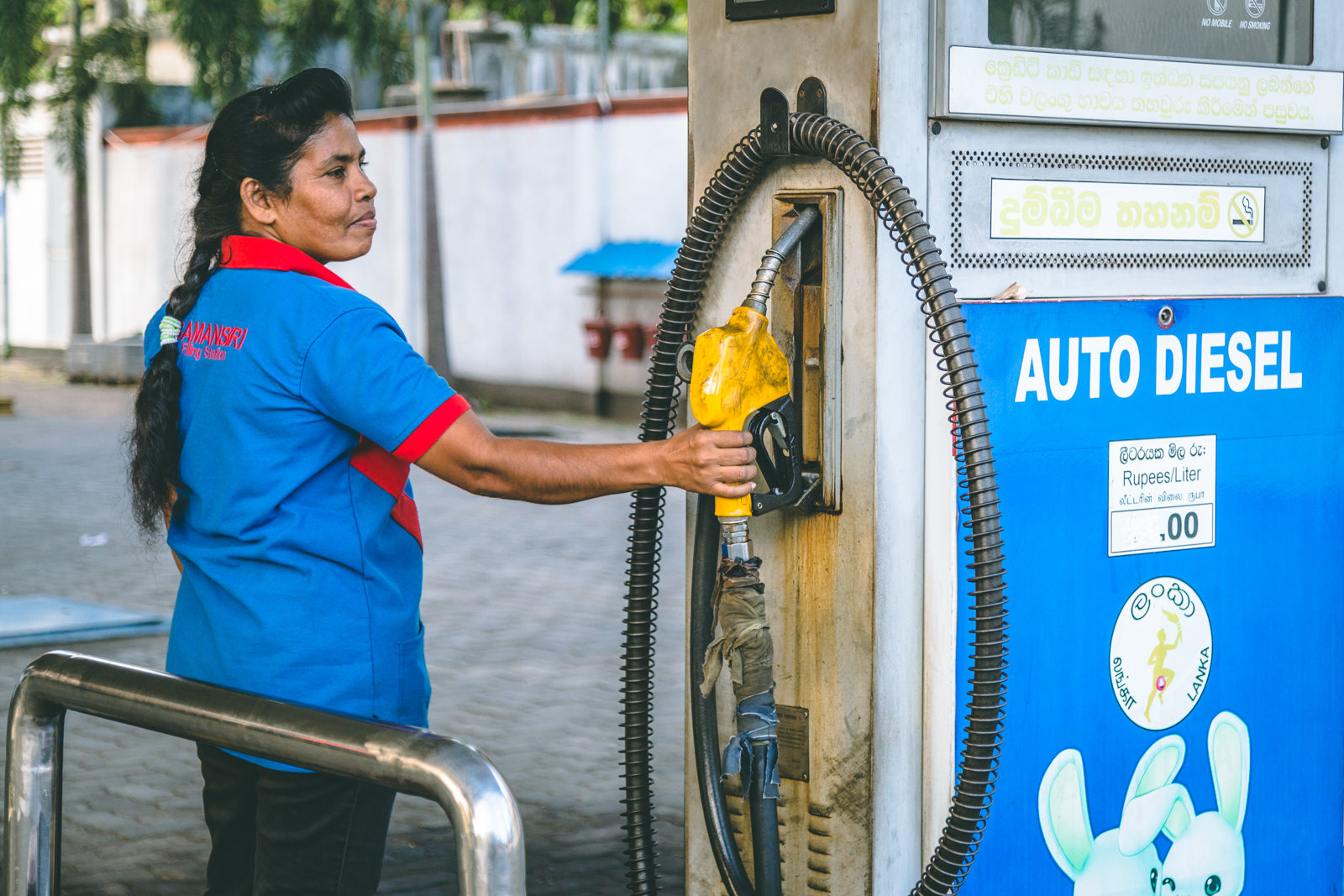
Photo credit: Nazly Ahmed / Roar Media
My husband is off doing his own work. But in this economy, a family cannot survive when only one person is working. That’s why I’m working too. I’ve worked in Kuwait and at a garment factory. But this is the most enjoyable job I’ve had — by far.”
Forty-year-old Niluka Deepani is not even from Nalla. Originally from Piliyandala, she came across the all-female filling station while visiting relatives in the area, and was immediately intrigued. Deepani is sprightly and talkative — her quips and quirks dominate the shed. “Hey, there’s a car coming machang,” she yelled at Surangika mid-interview.
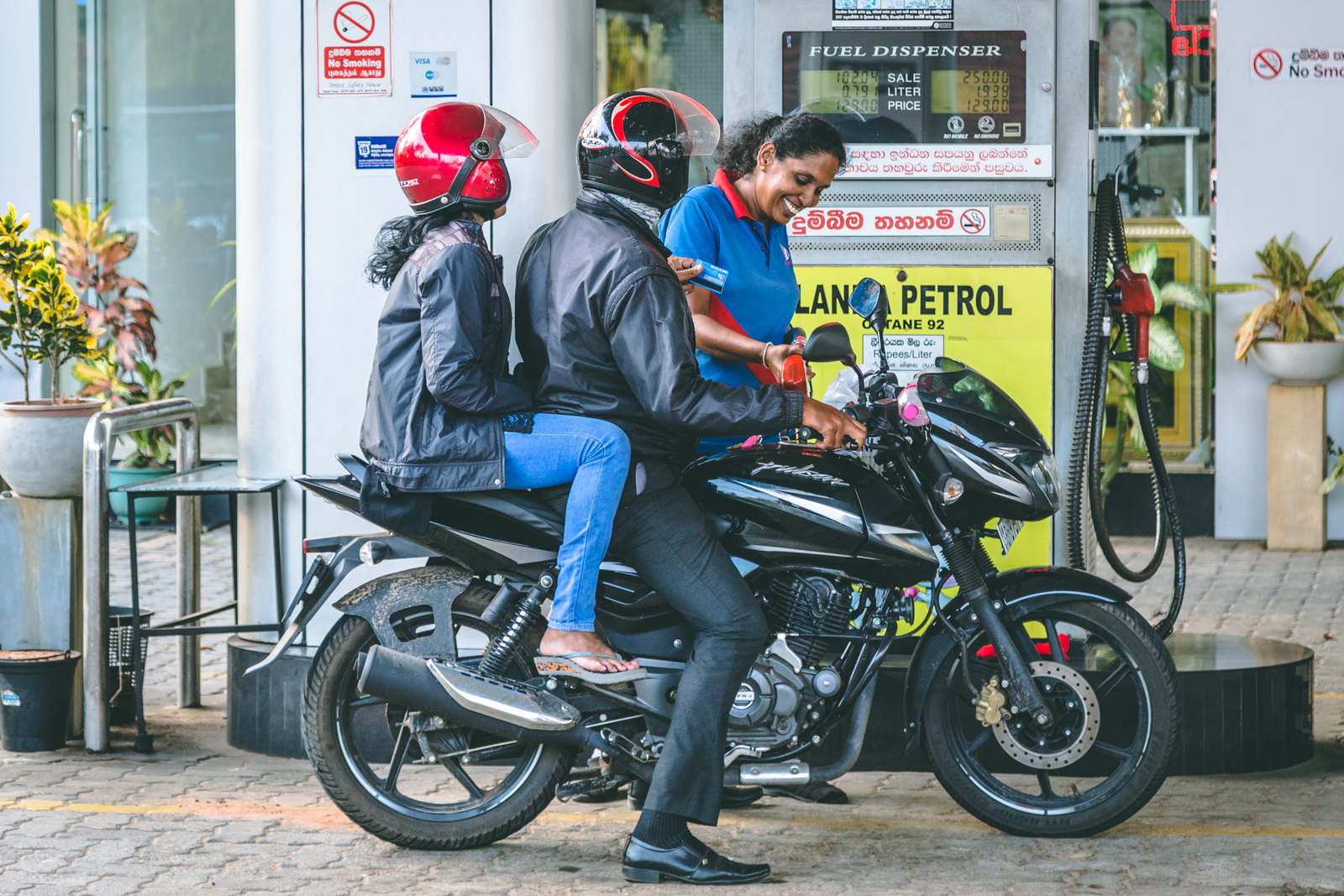
Photo credit: Nazly Ahmed / Roar Media
I was down on my luck after my business failed. I didn’t have a proper income and I was living alone. Working here has given me so much and I’m truly grateful. Women, despite their talents and capabilities, have never been given the opportunity to work — the world has always been about men. But now, with the work we have done and are doing, we’re proving that ladies can do anything.”
Ratna Gamage is easily the most senior employee at the station. At 64, she’s short and plump, and has an assortment of medical issues, including diabetes and high blood pressure. You would not notice any of her ailments with her fast-paced speech and tendency to fly into monologues. She told us that she had never dreamt of finding work anywhere, at her age. Enthusiastic beyond her years, Gamage found out about the filling station through a newspaper advertisement and was interested in the vacancy that, bypassing norms, called for women recruits.
Gamage lives behind the shed, in a shared space with Deepani. The two are closer to each other than they are to the other attendants. With Deepani’s sense of humour and Gamage’s cheer, the 92 Octane pump is rarely devoid of laughter.
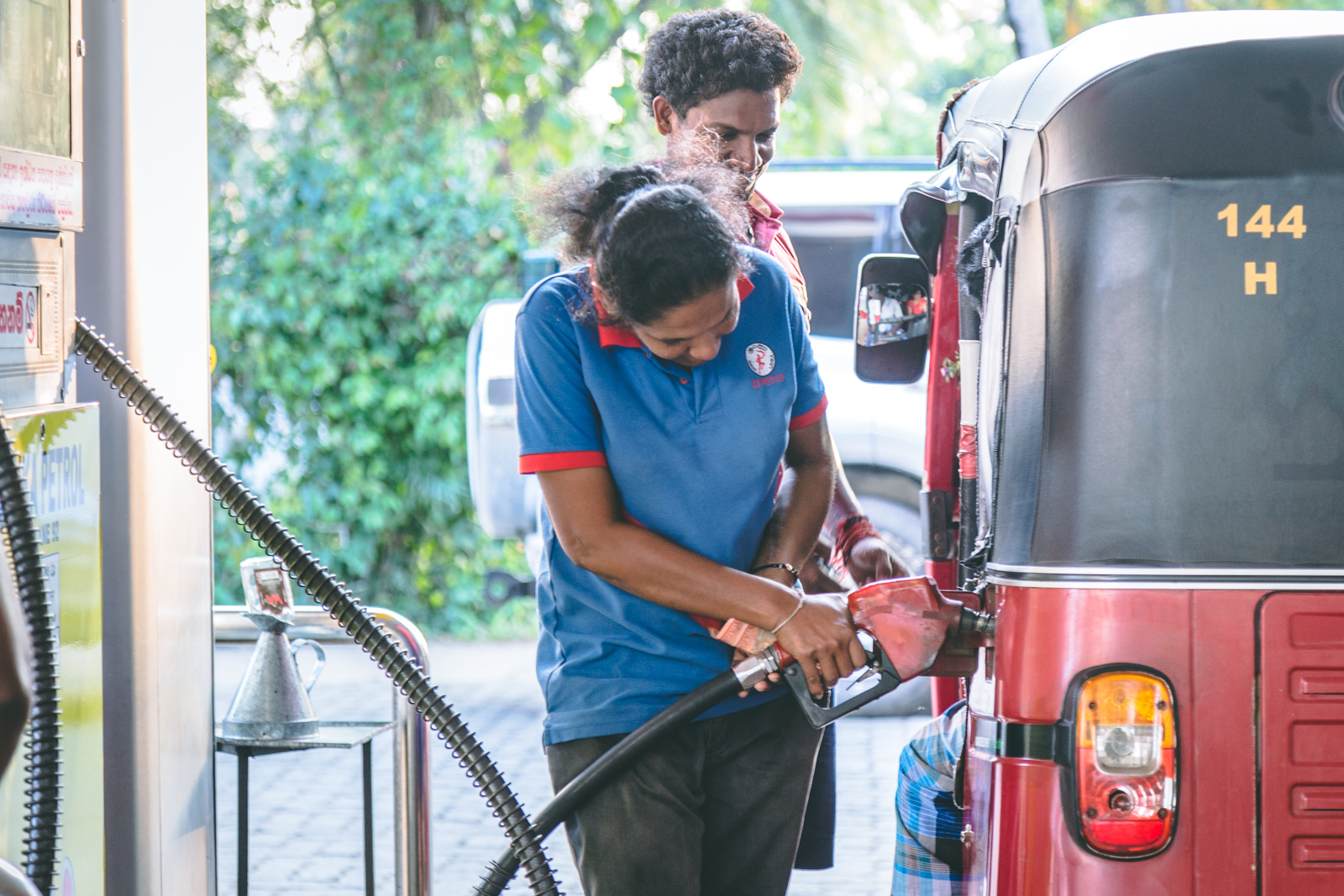
Photo credit: Nazly Ahmed / Roar Media
I have no family except for my sister — everyone else has passed away. I used to live with them before, but now I live here at the station. Now that I’m working here, I don’t get sick that often. I still take my medicine. But I think that if I were somewhere else, not working, I’d be worse off — keeping busy helps take my mind off being sick. Now my sister says that since I’ve started working, they can’t get me to stay over with her.”
According to Rashmi Pathiraja, the owner of the station, she was inspired to try this unique concept after a visit to China. “There was always the question of whether women would join us,” she said. “But that was quickly solved when women lined up for employment.” She is proud of the fact that her initiative gave women in Nalla a chance to earn an income and learn to do something new.
But her decision did not come without criticism. “Society, as always, had its compliments as well as criticism,” she said. “You know how they always point out the wrongs, including even the right decisions. [But] we just wanted to do our job. We had our priorities.”
The filling station has become something of a cynosure of eyes; people often stop here to see for themselves the women who run the station. But Pathiraja is wary of the attention. It was only with great reluctance that she agreed to speak to Roar Media. “After we received so much exposure from the media, it came to the point that the police had to warn us of possible break-ins,” she said. “So we are now trying to reduce the attention on us.”

